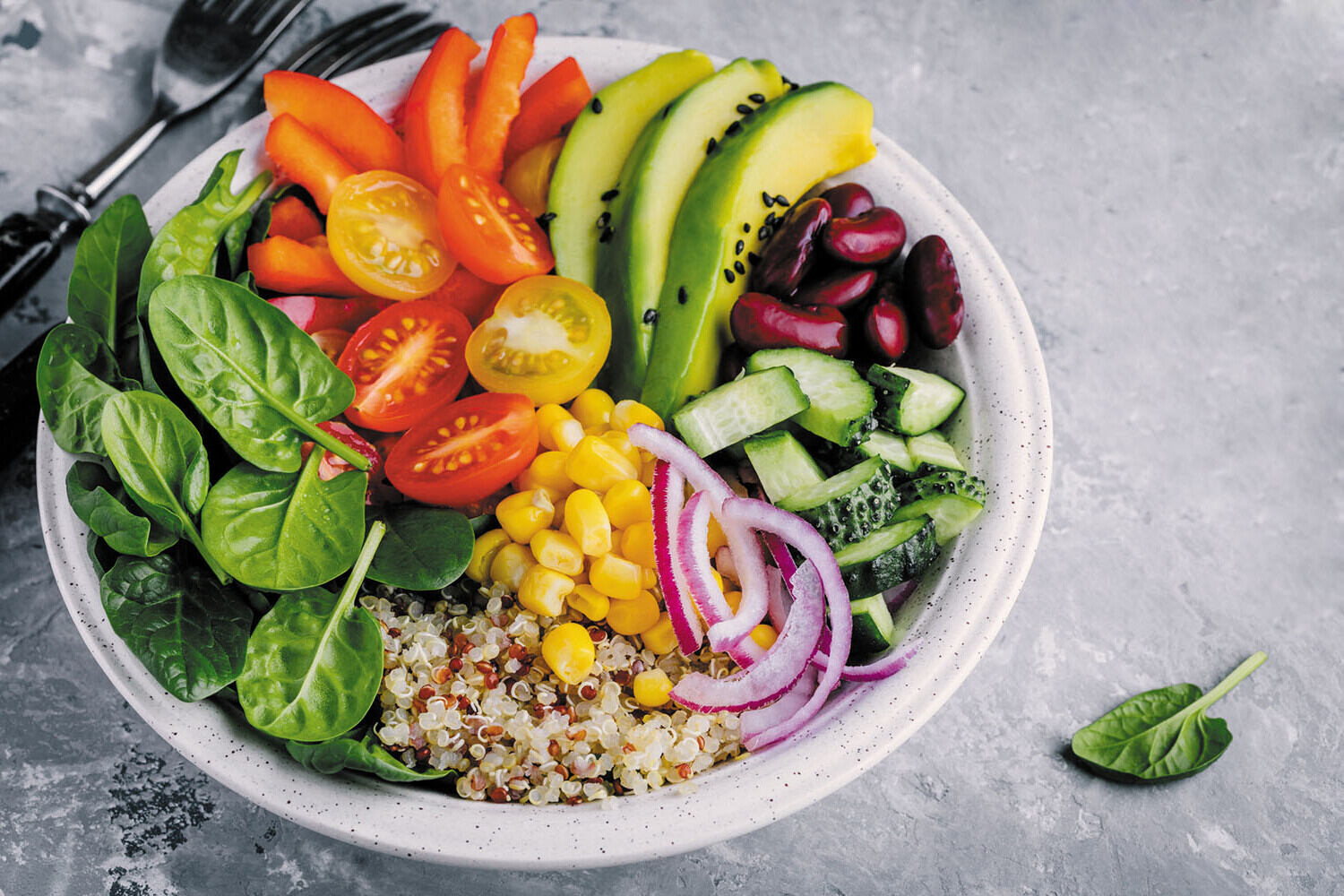
Eating a healthy diet is essential for maintaining overall well-being and preventing chronic diseases. But what exactly makes a diet healthy? A balanced diet typically includes a variety of foods from all the major food groups: fruits, vegetables, proteins, grains, and dairy. Nutrients like vitamins, minerals, and fiber play crucial roles in keeping our bodies functioning optimally. Did you know that eating a rainbow of fruits and vegetables can provide a wide range of nutrients? Or that whole grains are better for you than refined grains? Healthy eating isn't just about what you eat but also how much and how often. Portion control and regular meals can make a big difference. Ready to learn more? Let's dive into 21 fascinating facts about maintaining a healthy diet!
Benefits of a Healthy Diet
Eating well isn't just about maintaining a slim figure. A healthy diet offers numerous benefits that can improve your overall well-being.
-
Boosts Immunity: Consuming fruits and vegetables rich in vitamins and minerals strengthens your immune system, helping your body fight off illnesses.
-
Improves Mood: Foods high in omega-3 fatty acids, like salmon and walnuts, can enhance your mood and reduce symptoms of depression.
-
Increases Energy Levels: Whole grains, lean proteins, and healthy fats provide sustained energy throughout the day, keeping you active and alert.
-
Promotes Healthy Skin: Nutrients like vitamins C and E, found in citrus fruits and nuts, contribute to glowing, healthy skin.
-
Supports Brain Health: Antioxidant-rich foods like berries and leafy greens protect brain cells and improve cognitive function.
Essential Nutrients
A balanced diet includes a variety of nutrients that are essential for the body's proper functioning. Here are some key nutrients you should include in your diet.
-
Protein: Essential for muscle repair and growth, protein can be found in meat, beans, and dairy products.
-
Fiber: Found in whole grains, fruits, and vegetables, fiber aids digestion and helps maintain a healthy weight.
-
Calcium: Important for bone health, calcium is abundant in dairy products, leafy greens, and fortified foods.
-
Iron: Crucial for transporting oxygen in the blood, iron can be sourced from red meat, beans, and spinach.
-
Vitamin D: Supports bone health and immune function. Get it from sunlight, fatty fish, and fortified dairy products.
Healthy Eating Habits
Adopting healthy eating habits can make a significant difference in your diet and overall health. Here are some practices to consider.
-
Eat Breakfast: Starting your day with a nutritious breakfast can kickstart your metabolism and provide energy for the morning.
-
Stay Hydrated: Drinking plenty of water is essential for digestion, skin health, and overall bodily functions.
-
Portion Control: Eating smaller portions can help prevent overeating and maintain a healthy weight.
-
Limit Processed Foods: Processed foods often contain high levels of sugar, salt, and unhealthy fats. Opt for whole, unprocessed foods instead.
-
Mindful Eating: Paying attention to what and how you eat can improve digestion and help you enjoy your meals more.
Foods to Include in a Healthy Diet
Incorporating a variety of nutritious foods into your diet can ensure you get all the essential nutrients. Here are some foods to consider.
-
Leafy Greens: Spinach, kale, and other leafy greens are packed with vitamins, minerals, and fiber.
-
Berries: Blueberries, strawberries, and other berries are rich in antioxidants and vitamins.
-
Nuts and Seeds: Almonds, chia seeds, and flaxseeds provide healthy fats, protein, and fiber.
-
Lean Proteins: Chicken, turkey, and tofu are excellent sources of lean protein.
-
Whole Grains: Brown rice, quinoa, and whole wheat bread offer fiber and essential nutrients.
Long-Term Benefits
Maintaining a healthy diet can have long-term benefits that extend well into the future. Here are some advantages you can expect.
- Reduces Risk of Chronic Diseases: A balanced diet can lower the risk of developing chronic diseases such as heart disease, diabetes, and certain cancers.
Embracing a Healthier Lifestyle
Eating right doesn't have to be complicated. By focusing on whole foods, balanced meals, and staying hydrated, you can make a big difference in your overall health. Remember, small changes like adding more fruits and vegetables or cutting back on sugary drinks can lead to significant improvements. Don't forget the importance of regular exercise and getting enough sleep. These habits work together to keep you feeling your best.
It's also crucial to listen to your body. Everyone's nutritional needs are different, so what works for one person might not work for another. Pay attention to how different foods make you feel and adjust accordingly.
Making these changes might seem challenging at first, but with consistency, they can become part of your daily routine. Here's to a healthier, happier you!
Was this page helpful?
Our commitment to delivering trustworthy and engaging content is at the heart of what we do. Each fact on our site is contributed by real users like you, bringing a wealth of diverse insights and information. To ensure the highest standards of accuracy and reliability, our dedicated editors meticulously review each submission. This process guarantees that the facts we share are not only fascinating but also credible. Trust in our commitment to quality and authenticity as you explore and learn with us.


